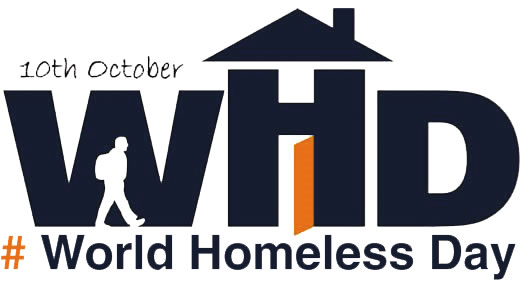
Everyone has the Right to a Home
Thursday 10th October is World Homeless Day. Marked internationally, the day is an opportunity to raise awareness about the issue of homelessness and those affected by it. This week, Action Homeless will be sharing stories about the diverse range of people we have worked with and the key values that underpin our work.
Action Homeless believes the only way to break the cycle of homelessness is by providing safe and secure housing for those living on the streets. Only when someone has the basic human right of a home can they make the changes in the lives they want.
Robert* has rough slept in Leicester for a number of years, before he moved into Action Homeless accommodation he had been rough sleeping with a friend, and then alone in the car park of an industrial complex in Leicester City Centre.
Robert was well known by local services but because of his lifestyle, he had declined previous offers of help, including temporary accommodation. He had lived in homes in the past but lost them because of problems with benefits and support. He supported himself by finding, treating and selling scrap found around Leicester. He often choose places to sleep that made this easier.
Drug issues meant that he often slept during the day and looked for scrap at night. This meant that outreach teams had to adapt their approach so they could talk to Robert when it worked for him, rather than when was convenient for them.
Robert was told about the different types of accommodation available to him and he was allowed to decide if any of it suited his needs. As a result, he agreed to come in to one of Action Homeless’s shared houses.
The RSI team at Action Homeless work using a strength based approach. This focuses on what people are good at supporting them to achieve goals they set themselves.
It was apparent to Robert’s support worker that his knowledge and understanding about scrapping was a strength that could be worked with, especially as it was clear that he wished to continue do it.
From a strength based position, rather than making a judgement about his line of work, his support worker accepted it as a strength and assisted him to begin reflecting on how it could be made more legitimate and ultimately if it could become his ‘employment’. Both a source of motivation and a way for him to support himself.
Robert began to settle into his accommodation, making his room more personalised and homely and joining in with leisure activities organised by the other people in his home. He continued to find sleeping on a bed problematic and slept with his bedroom door open, as doing so made him feel enclosed.
Robert has also been involved with support for students at a local school which supports young people excluded from mainstream schools. He provided ‘real life’ advice about how they could keep warm during a one-night sleep out they were planning. As a result of this contact some of the pupils have chosen homelessness as a topic they will be looked into more and are completing a project about ‘anti-homelessness architecture’ which will include public art, a petition to the local MP and possibly an example of peaceful protest in the City Centre to raise awareness of this. Robert has been asked to view their work and pass on any ideas.
Robert says that rough sleeping holds no fears for him. There have been periods when he may have left and returned to his previous life had Action Homeless not worked flexibly with his strengths rather than his weaknesses.
It hasn’t always been easy but this is the longest period Robert has spent indoors for around 6 years and he is looking forward to the future.
Supported by the The European End Street Homelessness Campaign
*Names have been changed to protect the privacy of those involved.
